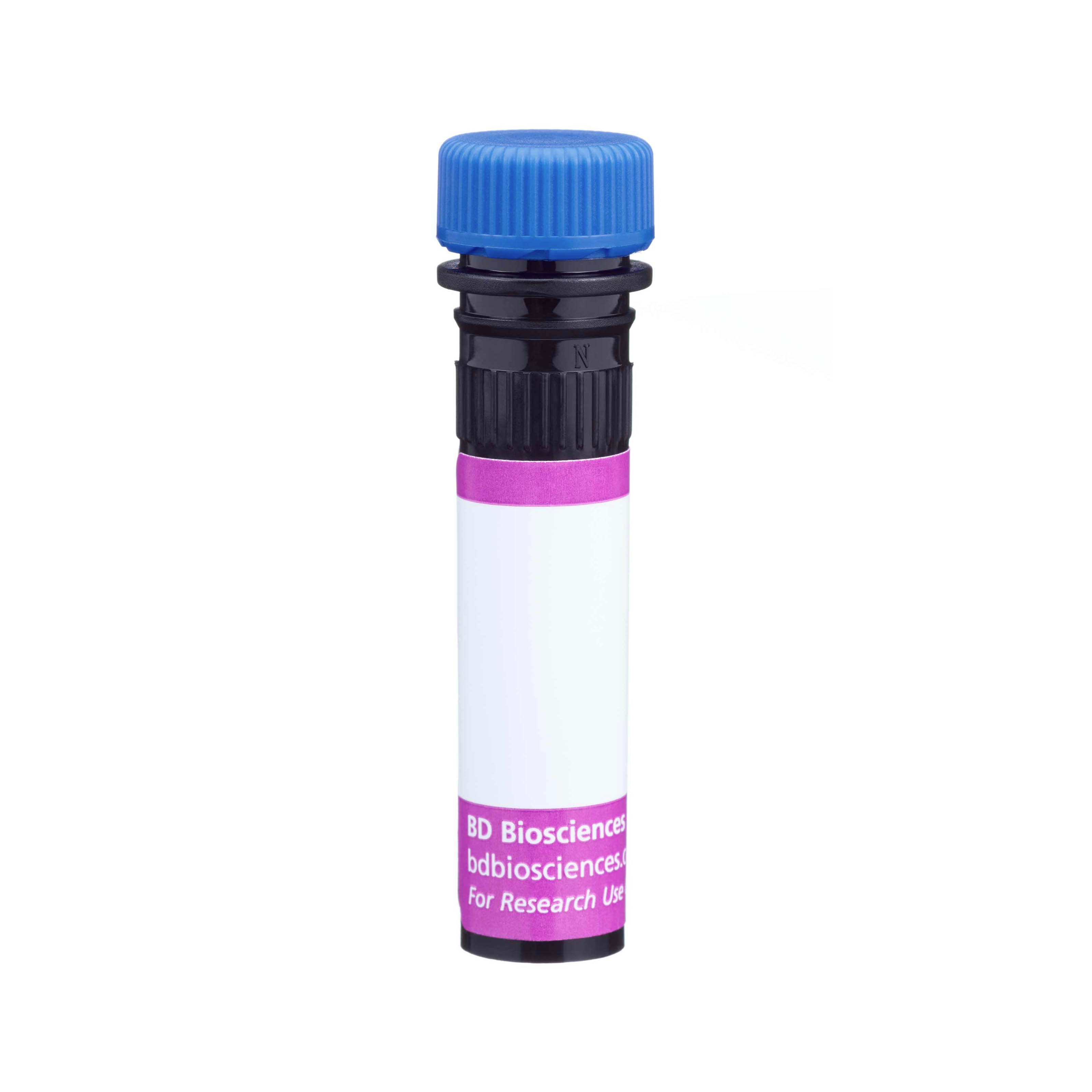-
Your selected country is
Middle East / Africa
- Change country/language
Old Browser
This page has been recently translated and is available in French now.
Looks like you're visiting us from {countryName}.
Would you like to stay on the current country site or be switched to your country?




Flow cytometric analysis of CD80 expression on human Raji cells. Cells from the human Raji (Burkitt's B cell lymphoma, ATCC CCL-86) cell line were stained with either BD Horizon™ BV421 Mouse IgG1, κ Isotype Control (Cat. No. 562438; dashed line histogram) or BD Horizon BV421 Mouse Anti-Human CD80 antibody (Cat. No. 564160; solid line histogram). The fluorescence histograms were derived from gated events with the forward and side light-scatter characteristics of viable cells. Flow cytometric analysis was performed using a BD™ LSR II Flow Cytometer System.


BD Horizon™ BV421 Mouse Anti-Human CD80

Regulatory Status Legend
Any use of products other than the permitted use without the express written authorization of Becton, Dickinson and Company is strictly prohibited.
Preparation And Storage
Product Notices
- This reagent has been pre-diluted for use at the recommended Volume per Test. We typically use 1 × 10^6 cells in a 100-µl experimental sample (a test).
- An isotype control should be used at the same concentration as the antibody of interest.
- Caution: Sodium azide yields highly toxic hydrazoic acid under acidic conditions. Dilute azide compounds in running water before discarding to avoid accumulation of potentially explosive deposits in plumbing.
- Source of all serum proteins is from USDA inspected abattoirs located in the United States.
- Pacific Blue™ is a trademark of Molecular Probes, Inc., Eugene, OR.
- Brilliant Violet™ 421 is a trademark of Sirigen.
- For fluorochrome spectra and suitable instrument settings, please refer to our Multicolor Flow Cytometry web page at www.bdbiosciences.com/colors.
- Please refer to www.bdbiosciences.com/us/s/resources for technical protocols.
Companion Products



The L307 monoclonal antibody specifically binds to B7/BB1, a 60 kDa transmembrane glycoprotein that was clustered as CD80 in the Fifth International Workshop on Human Leukocyte Differentiation Antigens. CD80, a member of the Ig supergene family, is expressed on activated B cells, T cells, macrophages, and dendritic cells. It is the ligand for two molecules expressed on T cells, CD28 and CD152 (CTLA-4). CD80 is also expressed on activated CD4-positive and CD8-positive T cells, appearing late after activation suggesting that activated T cells may be capable of autocrine costimulation via the CD28 activation pathway. The binding of CD28 by anti-CD28 or by CD80 results in T-cell activation and a signal for IL-2 production.
The antibody was conjugated to BD Horizon™ BV421 which is part of the BD Horizon Brilliant Violet™ family of dyes. With an Ex Max of 407-nm and Em Max at 421-nm, BD Horizon BV421 can be excited by the violet laser and detected in the standard Pacific Blue™ filter set (eg, 450/50-nm filter). BD Horizon BV421 conjugates are very bright, often exhibiting a 10 fold improvement in brightness compared to Pacific Blue™ conjugates.

Development References (4)
-
Azuma M, Yssel H, Phillips JH, Spits H, Lanier LL. Functional expression of B7/BB1 on activated T lymphocytes. J Exp Med. 1993; 177(3):845-850. (Immunogen: Flow cytometry, Immunoprecipitation, Induction). View Reference
-
Koulova L, Clark EA, Shu G, Dupont B. The CD28 ligand B7/BB1 provides costimulatory signal for alloactivation of CD4+ T cells. J Exp Med. 1991; 173(3):759-762. (Biology). View Reference
-
Schlossman SF. Stuart F. Schlossman .. et al., ed. Leucocyte typing V : white cell differentiation antigens : proceedings of the fifth international workshop and conference held in Boston, USA, 3-7 November, 1993. Oxford: Oxford University Press; 1995.
-
Schwartz RH. Costimulation of T lymphocytes: the role of CD28, CTLA-4, and B7/BB1 in interleukin-2 production and immunotherapy. Cell. 1992; 71(7):1065-1068. (Biology). View Reference
Please refer to Support Documents for Quality Certificates
Global - Refer to manufacturer's instructions for use and related User Manuals and Technical data sheets before using this products as described
Comparisons, where applicable, are made against older BD Technology, manual methods or are general performance claims. Comparisons are not made against non-BD technologies, unless otherwise noted.
For Research Use Only. Not for use in diagnostic or therapeutic procedures.
Report a Site Issue
This form is intended to help us improve our website experience. For other support, please visit our Contact Us page.